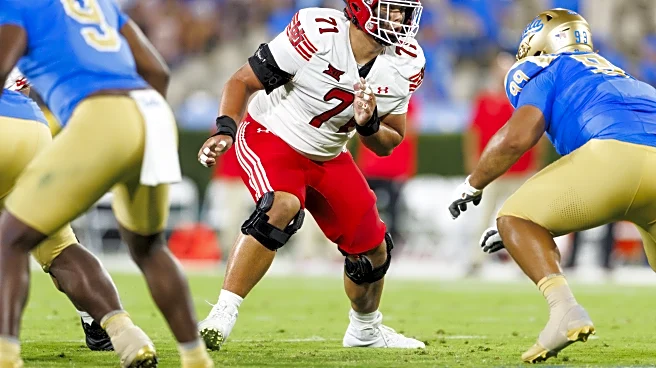What's Happening?
The Boston Red Sox are contemplating trading outfielder Masataka Yoshida, who is currently on a five-year, $90 million contract. Despite a solid postseason performance, Yoshida's future with the team is uncertain due to a crowded outfield roster. The Red Sox have several young talents, including Roman Anthony, Marcelo Mayer, and Kristian Campbell, who are expected to play significant roles in the team's future. Yoshida, who hit .333 in September and performed well in the playoffs, may be traded to free up space for these emerging players. The team is looking to optimize its roster by potentially offloading Yoshida's contract, which has two years and over $37 million remaining.
Why It's Important?
The decision to trade Masataka Yoshida could have significant implications for the Red Sox's strategy and financial flexibility. By potentially offloading Yoshida's contract, the team could allocate resources to develop younger players and strengthen other areas of the roster. This move could also impact the team's competitiveness in the upcoming seasons, as it seeks to build a sustainable model for success. The Red Sox's ability to manage their payroll effectively while nurturing young talent is crucial for maintaining their position in the league and achieving long-term success.
What's Next?
If the Red Sox decide to trade Yoshida, they will need to find a suitable team willing to take on his contract. This could involve negotiations with other MLB teams and assessing potential trade offers. The outcome of these discussions will likely influence the team's roster decisions and strategic planning for the next season. Additionally, the Red Sox will continue to evaluate their young outfielders' performances and development, ensuring they are prepared to step into more prominent roles.
Beyond the Headlines
The potential trade of Yoshida highlights the broader challenges MLB teams face in balancing veteran contracts with the development of young talent. It underscores the importance of strategic roster management and financial planning in professional sports. The Red Sox's decision could set a precedent for other teams dealing with similar situations, influencing how they approach player contracts and team composition.









